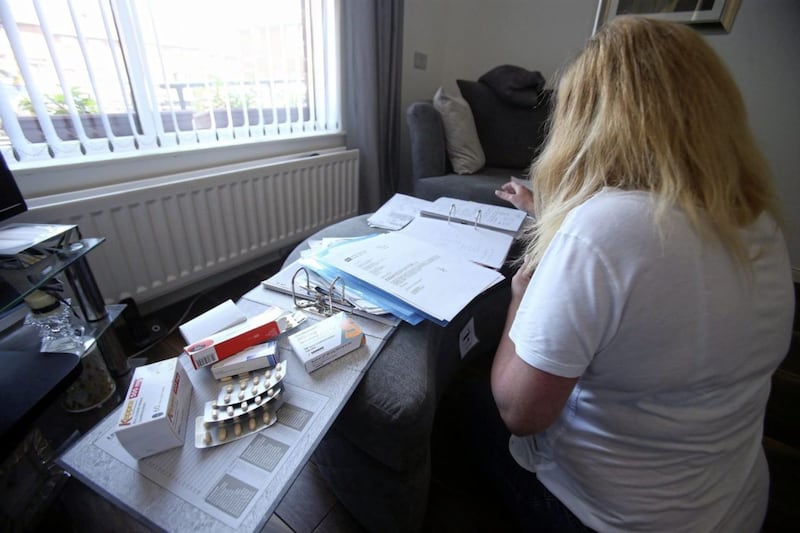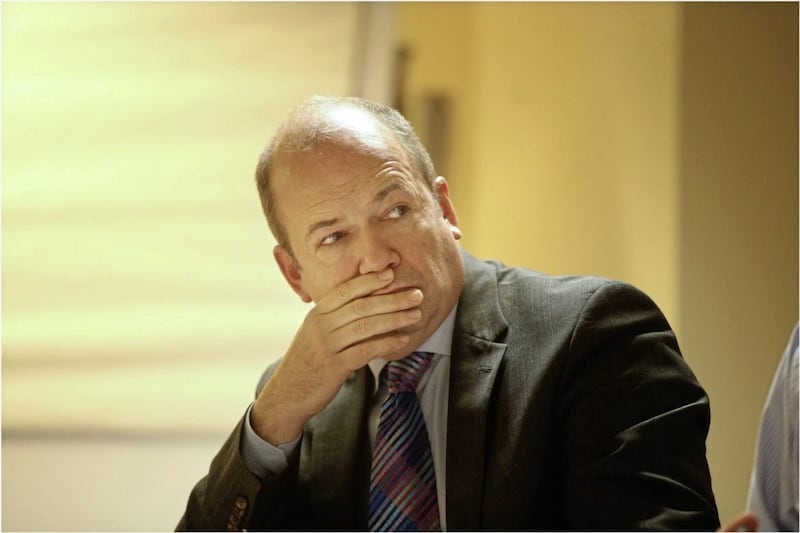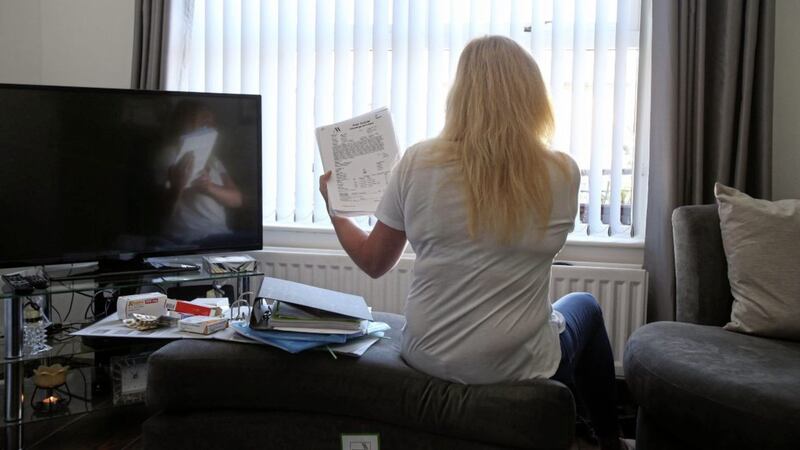SECURING a job in the Northern Ireland Assembly was the goal a young north Belfast woman had been striving for since completing her degree.
But just a year into her 'dream' post, as she was getting ready for work on a Sunday evening in April 2014, her legs started to shake uncontrollably.
Having enjoyed perfect health up until that night - she and her partner were even talking about having a baby - the 31-year-old travelled to work on the Monday morning where her condition deteriorated.
Within 48 hours she was admitted to a stroke ward in the Mater hospital, where she would remain for the next month.
She has never returned to work and was forced to move to a specially adapted ground-floor flat for a disabled person.
"My life fell apart. I was so heavily medicated I didn't know what was going on. I went from being someone who didn't even take paracetamol for a headache to a zombie within weeks," she said.
"But they couldn't give me a diagnosis."
READ MORE:
- Leaked NHS memo reveals what sparked probe into Dr Michael Watt
- Dr Michael Watt patient recall: What do we know?
- Neurology crisis: Sinn Fein hits out at 'lack of clarity' from NHS
The woman, who does not wish to be named as she is currently taking legal action against the Belfast health trust, was transferred to the care of consultant neurologist Dr Michael Watt.
She vividly recalls her first hospital appointment with him in October 2014:
"He was lovely with no airs or graces, and was just very easy to talk to. This was where he had my trust. I literally put my life in his hands as he was so adamant he was going to fix me," she said.
"Over the next year and a half, Dr Watt managed my condition by giving me medication but I was getting worse. I was on anti-epileptic drugs, beta blockers, diazepam and tramadol - I was on 35 pills a day.
"It was then that he suggested a treatment known as an epidural blood patch - where blood is taken from your arm and injected into your spine and acts as a clot or patch.
"I googled it and watched videos on the procedure as I knew it wasn't common. But my headaches had become horrendous and I was desperate."

In early February 2016, she underwent the procedure under Dr Watt's care in the Royal Victoria Hospital.
"What should have taken one hour took 10 hours as I started having tremors and suffered a really bad seizure during it.
"For the next five days I couldn't walk and was in chronic pain. It was then I began to suffer seizures in my sleep."
The young woman was diagnosed with a rare brain disease by Dr Watt, but it is now thought she does not suffer from this. The consultant also advised her against having children.
"It was then I became house bound and started using a walking aid and wheelchair. Nine months after the first epidural blood patch, Dr Watt suggested I went for a second one. My family and partner had major concerns but I wouldn't hear anything against Dr Watt... thankfully I never had it."

Just over four weeks ago the Belfast trust released a statement confirming that 2,500 patients of Dr Watt were being recalled amid concerns some may have been misdiagnosed.
For the north Belfast woman, the timing of the trust's recall was significant as on the same day she received copies of her private medical notes, which she had requested months earlier.
Critically, these confidential patient files reveal that a second high-profile trust neurologist was assessing her case as far back as April 2016.
Her decision to request her notes - which cost £50 - was sparked by a trust letter she received in November last year setting out concerns about whether patients actually "require" planned blood patch treatments.

Belfast trust chiefs have repeatedly said they were not aware of concerns about Dr Watt until December 2016 when a whistleblower GP and some of his colleagues raised the alarm.
"After reviewing my notes I don't think the trust is being as open as they say they are. It took up until May this year before we were recalled and learned about the review into Dr Watt - yet it's clear that another consultant was overseeing his treatment of me much earlier," she said.
The woman was one of the first patients reviewed at the recall clinics set up by the trust.

"The consultant I saw was shocked at the amount of anti-epilepsy drugs I was on and reduced the dosage. I just feel I am back to square one now as I still don't have a diagnosis and I don't know what damage has been done with all the drugs I've been taking.
"My life was going so well before this, I had just got my degree and a job in the assembly and wanted to start a family. But four years on I've become socially isolated and lost my independence. There are days when I cannot get up from a chair.
"The chief medical officer says he feels 'diminished' as a doctor by what has happened. But what about how the patients feel? The way the health service has handled this has only added to my trauma."








